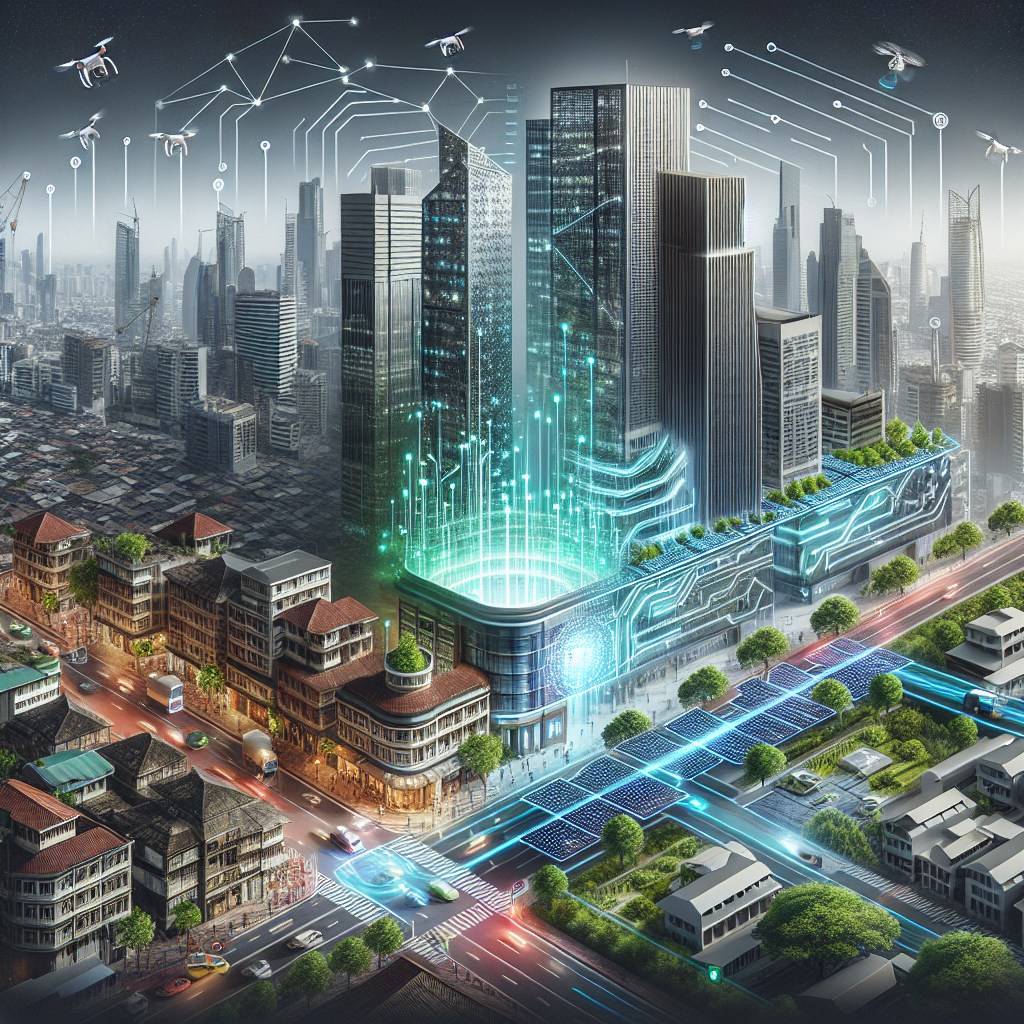The Future of Smart Buildings: How AI is Driving Innovation
Smart buildings are becoming increasingly popular in today’s world as technology continues to advance. With the help of artificial intelligence (AI), these buildings are becoming more efficient, sustainable, and convenient for their occupants. AI is driving innovation in smart buildings by providing advanced automation, predictive maintenance, energy efficiency, and improved security. In this article, we will explore how AI is shaping the future of smart buildings and the benefits it brings to both building owners and occupants.
AI in Smart Buildings
Artificial intelligence is revolutionizing the way smart buildings operate by providing real-time data analysis and automation. AI systems can collect and analyze data from various sensors and devices in the building to optimize energy usage, improve comfort levels, and enhance security. With AI, smart buildings can learn from patterns and trends in data to make informed decisions without human intervention.
One of the key areas where AI is driving innovation in smart buildings is predictive maintenance. AI algorithms can analyze data from sensors and equipment to predict when maintenance is needed before a breakdown occurs. This proactive approach to maintenance can help reduce downtime, extend the lifespan of equipment, and save costs on repairs.
Energy efficiency is another area where AI is making a significant impact in smart buildings. AI systems can monitor energy usage in real-time and adjust settings automatically to optimize energy consumption. By analyzing data from sensors, AI can identify opportunities for energy savings and recommend changes to building systems to reduce energy waste.
Improved security is another benefit of incorporating AI in smart buildings. AI-powered security systems can detect and respond to threats in real-time, such as unauthorized access, intruders, or unusual behavior patterns. By using AI algorithms, smart buildings can enhance security measures and provide a safer environment for occupants.
Benefits of AI in Smart Buildings
There are several benefits of incorporating AI in smart buildings, including:
1. Energy efficiency: AI can help optimize energy usage in smart buildings by analyzing data and adjusting settings to reduce energy waste.
2. Predictive maintenance: AI algorithms can predict when maintenance is needed, helping to prevent breakdowns and reduce downtime.
3. Improved security: AI-powered security systems can detect and respond to threats in real-time, enhancing the safety of occupants.
4. Enhanced comfort: AI can adjust settings in smart buildings to optimize comfort levels for occupants, such as temperature, lighting, and air quality.
5. Cost savings: By optimizing energy usage and predicting maintenance needs, AI can help reduce operational costs in smart buildings.
FAQs
Q: What is a smart building?
A: A smart building is a building that uses technology to automate and optimize various systems, such as lighting, heating, cooling, security, and energy management.
Q: How does AI improve energy efficiency in smart buildings?
A: AI can analyze data from sensors and devices in the building to optimize energy usage by adjusting settings automatically and identifying opportunities for energy savings.
Q: What are the benefits of predictive maintenance in smart buildings?
A: Predictive maintenance can help prevent breakdowns, reduce downtime, extend the lifespan of equipment, and save costs on repairs.
Q: How does AI enhance security in smart buildings?
A: AI-powered security systems can detect and respond to threats in real-time, such as unauthorized access, intruders, or unusual behavior patterns, to provide a safer environment for occupants.
Q: What are the key benefits of incorporating AI in smart buildings?
A: The key benefits of AI in smart buildings include energy efficiency, predictive maintenance, improved security, enhanced comfort, and cost savings.
In conclusion, the future of smart buildings is bright with the integration of artificial intelligence. AI is driving innovation in smart buildings by providing advanced automation, predictive maintenance, energy efficiency, and improved security. Building owners and occupants can benefit from the convenience, sustainability, and efficiency that AI brings to smart buildings. As technology continues to advance, we can expect to see even more exciting developments in the field of smart buildings driven by AI.

